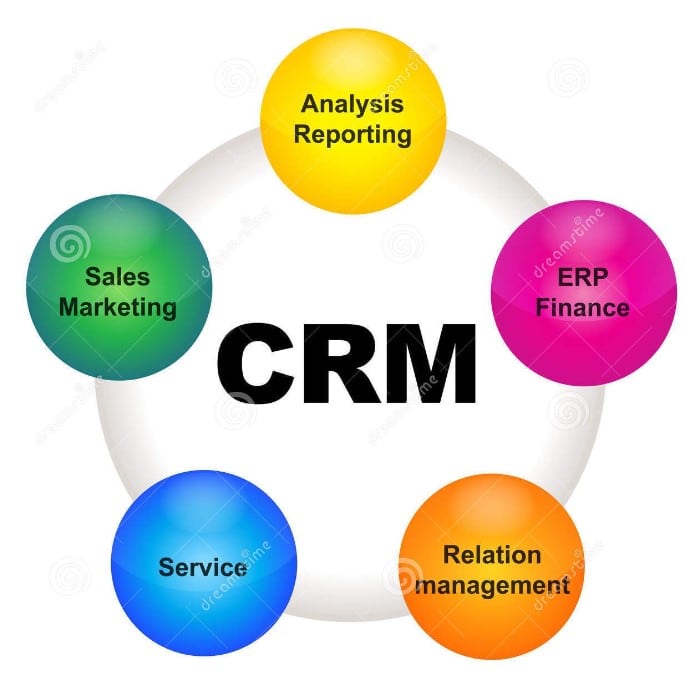What exactly is CRM? CRM stands for Customer Relationship Management, a term that describes all the strategies, techniques, tools, and technologies used by businesses for developing, retaining and acquiring customers.
The Evolution of CRM
The concept of CRM is not a new one, it has simply evolved with time and technology.
Before the digital era
Prior to the digital revolution, businesses kept paper-based records of their customers and manually tracked their interactions and transactions. Remember the age-old Rolodex? That was CRM in its most basic form!
Digital revolution and CRM
With the advent of technology, CRM systems moved to computers and databases. Today, modern CRM is largely software-based, providing an all-encompassing view of customers in real-time.
The Inner Workings of CRM Software
So, how does CRM software work?
Information gathering and management
CRM software works as a centralized hub for all customer information. It collects and organizes data from various touchpoints, like social media, emails, and calls.
Automation of tasks
From sending follow-up emails to managing appointments, CRM software automates repetitive tasks, freeing up time for more strategic work.
Advanced analytics and reporting
CRM software offers powerful analytics capabilities, providing businesses with actionable insights and helping them make data-driven decisions.
The Impact of CRM on Businesses
Why does your business need CRM?
Enhanced customer relationships
CRM allows businesses to offer personalized experiences, fostering stronger relationships with their customers.
Boosted sales performance
By streamlining processes and providing insightful data, CRM can help boost sales performance and improve conversion rates.
Improved internal communication
With a shared customer database, internal communication within the company becomes more efficient.
Choosing the Right CRM Software
Finding the right CRM software can be daunting.
Considerations for small businesses
For small businesses, affordability and ease of use should be key considerations.
Needs of large enterprises
For large enterprises, scalability, integration capabilities, and advanced features like AI should be on the checklist.
The Future of CRM
What’s next for CRM?
| Table 2: Article Content (Continuation) |
|---|
Integration with other technologies
As technology advances, CRM is likely to become more integrated with other business systems, offering a seamless, all-in-one platform.
Role of AI and machine learning
Artificial intelligence (AI) and machine learning are poised to play a pivotal role in the future of CRM, offering predictive analytics and personalized customer experiences.
Personalization trends
As consumers continue to demand more personalized experiences, CRM systems will likely continue to evolve in their ability to leverage customer data for more personalized marketing and service efforts.
Conclusion
In essence, CRM is not just a software solution, but a comprehensive approach to managing and improving customer relationships. With the right CRM software, businesses can leverage customer data, streamline processes, improve communication, and ultimately drive growth. As the CRM landscape continues to evolve with advancements in technology, businesses that adapt and leverage these tools will undoubtedly stay ahead of the competition.
FAQs
- What does CRM stand for?
- CRM stands for Customer Relationship Management.
- How does a CRM system benefit a business?
- A CRM system benefits a business by improving customer relationships, increasing sales performance, and enhancing internal communication.
- What is the role of AI in CRM?
- AI can analyze vast amounts of data to provide predictive analytics and personalized customer experiences.
- What should small businesses consider when choosing a CRM?
- Small businesses should consider affordability, ease of use, and the specific needs of their business when choosing a CRM.
- How has CRM evolved over time?
- CRM has evolved from paper-based systems to digital databases and now to advanced software solutions that offer automation, analytics, and integration with other business systems.
- What are some examples of CRM software?
- Some popular CRM software includes Salesforce, HubSpot, Zoho, and Microsoft Dynamics 365.
- How does CRM improve customer service?
- CRM improves customer service by offering a 360-degree view of the customer, enabling personalized interactions, faster response times, and effective issue resolution.
- How can CRM influence marketing strategies?
- CRM can influence marketing strategies by providing valuable customer insights that enable targeted, personalized marketing campaigns.
- What are the main components of a CRM system?
- The main components of a CRM system include contact management, sales force automation, marketing automation, and customer service features.
- How is CRM related to sales?
- CRM is closely related to sales as it helps manage customer data, track sales activities, forecast sales trends, and ultimately, boost sales performance.
- Is CRM software suitable for every business?
- While the specifics may vary, virtually every business can benefit from a CRM system to better understand their customers and streamline their processes.
- Can CRM integrate with other software?
- Yes, most CRM systems can integrate with other software like email clients, accounting software, and marketing automation tools for a more streamlined workflow.
- How does CRM aid in decision-making?
- CRM provides valuable insights through data analysis and reporting features. These insights can help businesses make informed, strategic decisions.
- Is CRM only for large enterprises?
- No, CRM software is available and beneficial for businesses of all sizes, including small businesses. There are many cost-effective CRM options tailored to the needs and budgets of smaller businesses.
- How secure is CRM software?
- Most CRM software providers prioritize security, offering features like data encryption, two-factor authentication, and regular security audits. However, the level of security can vary between providers.
